Photo: Courtesy of Danny Ocean
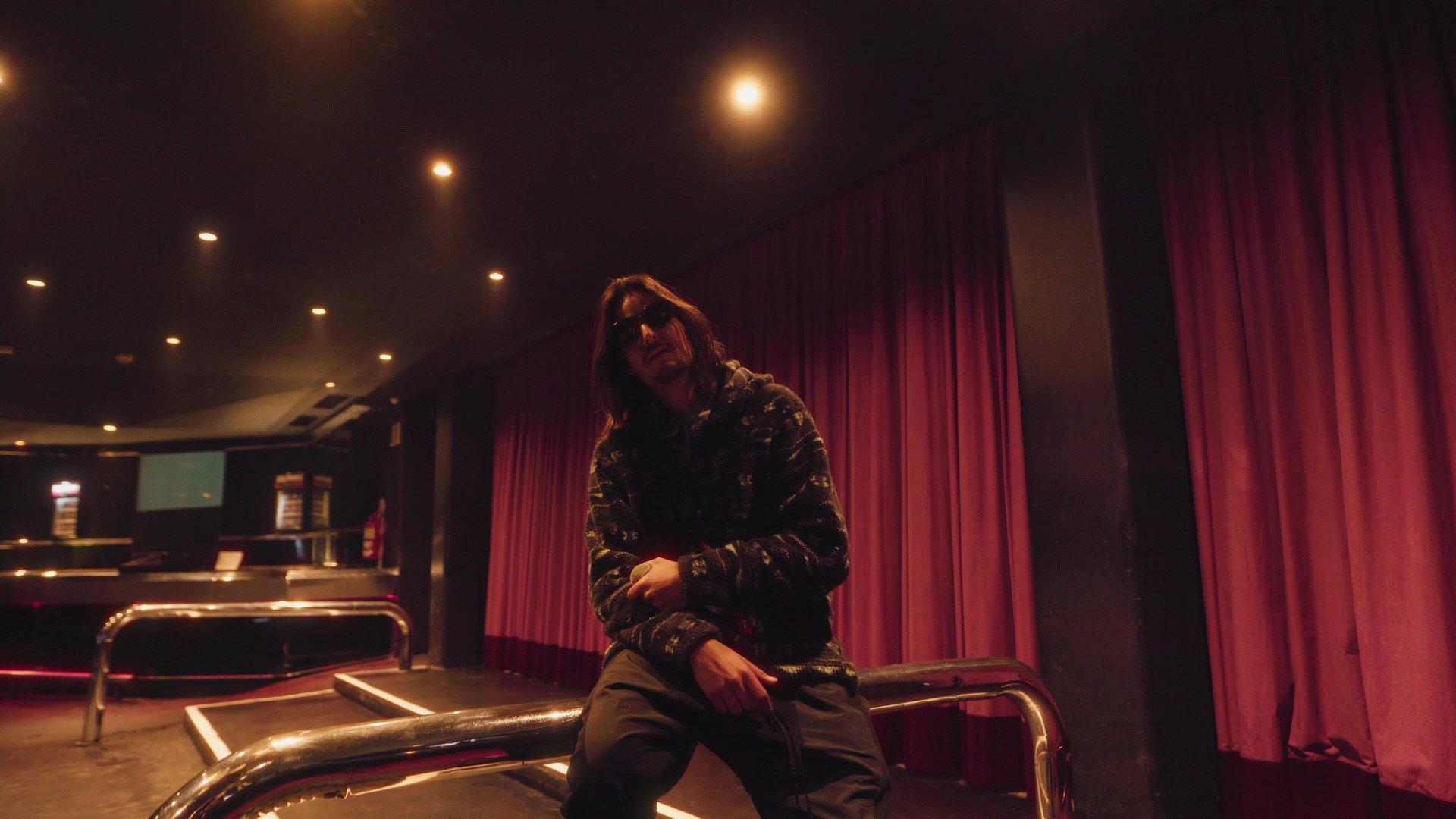
video
Press Play At Home: Danny Ocean Shows A More Intimate Side With His Yearning "Fuera Del Mercado" Performance
Danny Ocean takes to the stage — minus an audience — for an emotional performance of his new song, "Fuera Del Mercado."
Fans likely know Danny Ocean best for "Me Rehúso" — his global megahit from 2017 — but the Venezuelan singer/songwriter digs into deeper and more introspective territory with his newer material, including "Fuera Del Mercado."
In this episode of Press Play at Home, watch Ocean's intimate onstage performance of the song. Though the stage is decked out for a full concert — featuring a band, lighting and even a bodyguard standing by the pit — there's no one in the audience. The empty venue makes for a rendition of the song that's introspective, and even eerie, despite its danceable beat.
"Fuera Del Mercado" translates to "Off the Market" in English. But as Ocean explained to La Mezcla, it's unfortunately not about himself going off the market — instead, it's a bittersweet goodbye to an ex.
"The story of when someone finds out that a person they like very much is going to get married, and also in the end you realize that the happiness of the other person is what is most valuable, and also your happiness," Ocean wrote.
That yearning, regret and optimism all come through in the singer/songwriter's performance, amplified by his expressive vocal delivery. The complex narratives behind "Fuera Del Mercado" are representative of what Ocean set out to do when he was making his second full-length album, @dannocean.
"The process of this album has been love and hate," he told Rolling Stone, adding that he hopes fans will see a "darker Danny" in the results. "It took me a while to figure out what I wanted to say, the stories I wanted to write, visually how I wanted to express myself."
"Fuera Del Mercado" is one of 16 songs on @dannocean, which is available on all streaming platforms now. Enjoy the video above, and check back to GRAMMY.com for more episodes of Press Play at Home.
10 Must-Hear Albums In July 2022: Beyoncé, J-Hope, Burna Boy, Lizzo & More
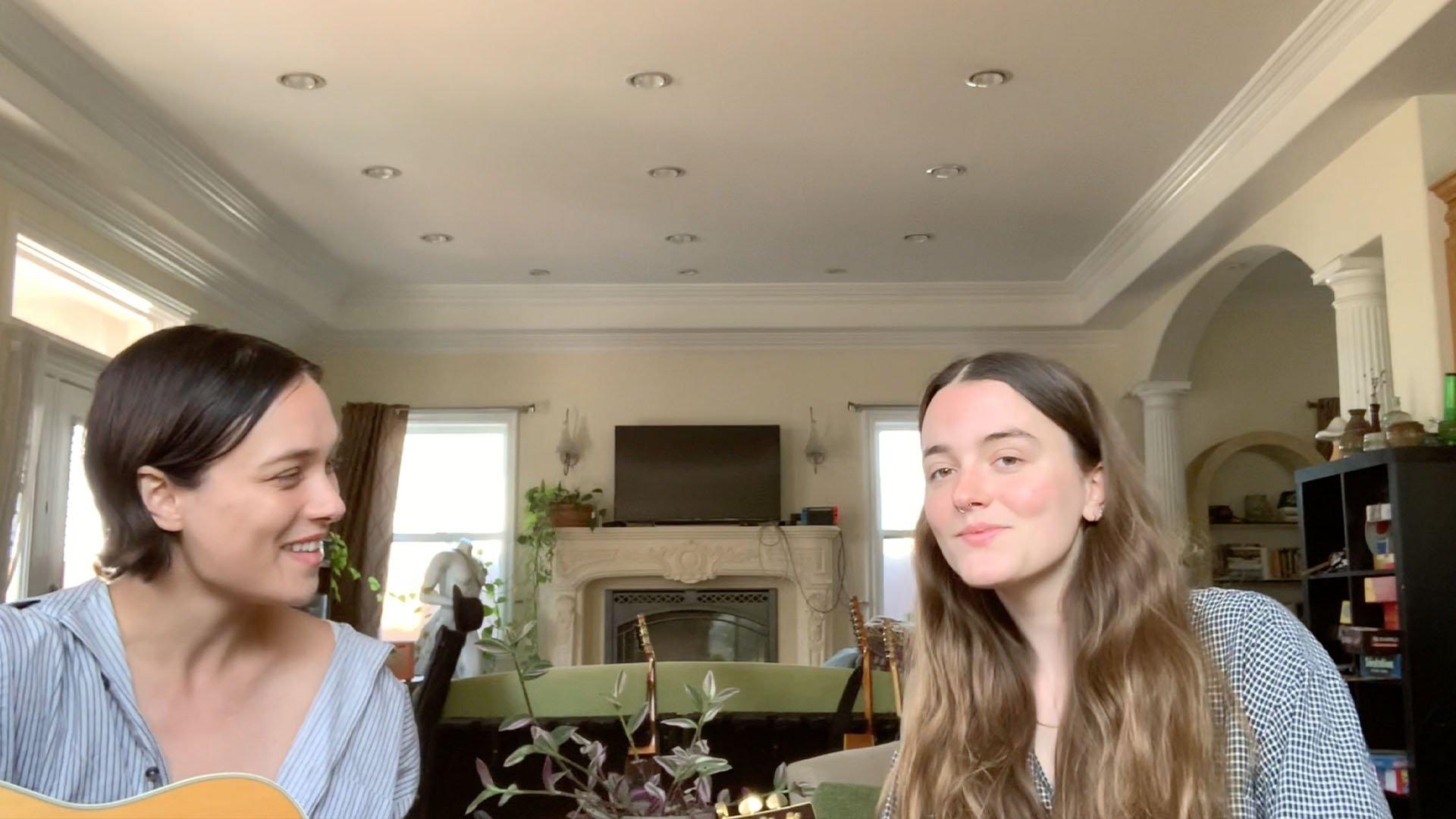
Photo: Courtesy of Abby Sage
video
Press Play: Watch Abby Sage Feed Her “Hunger” In This Acoustic Performance Of Her Single
Rising indie star Abby Sage performs “Hunger,” an unapologetic track about sexual liberation from her debut album, ‘The Rot.’
With "Hunger," rising indie star Abby Sage takes autonomy of her body. It’s a story of shameless self-discovery as she submits to her natural desires while simultaneously breaking down the toxic ideas she learned about sex in her adolescence.
"Feed my hunger/ No shame, I'm just a beginner," she croons in the chorus. "It's my own wonder/ Don't press, I'm just a beginner."
In this episode of Press Play, watch Sage deliver an acoustic performance of the single from her debut album, The Rot, which she released on March 1. According to a statement, the project is largely about "the decomposition and reconstruction of everything I was taught," including sex, anxiety, and more.
Sage said "Hunger" is "the most important song to me on the album" adding, "I wish I heard a song like this when I was first exploring my sexuality and my sexual journey, and for that reason, I hope it reaches people."
This May, Sage will embark on an international tour that begins in Los Angeles and concludes in London, with support from gglum, spiderblush, and Jayla Kai.
Watch the video above to hear Abby Sage's empowering performance of "Hunger," and remember to check back to GRAMMY.com for more new episodes of Press Play.
Watch Genia Narrate The Pain Of Heartbreak In This Raw Performance Of "Dear Life" | Press Play
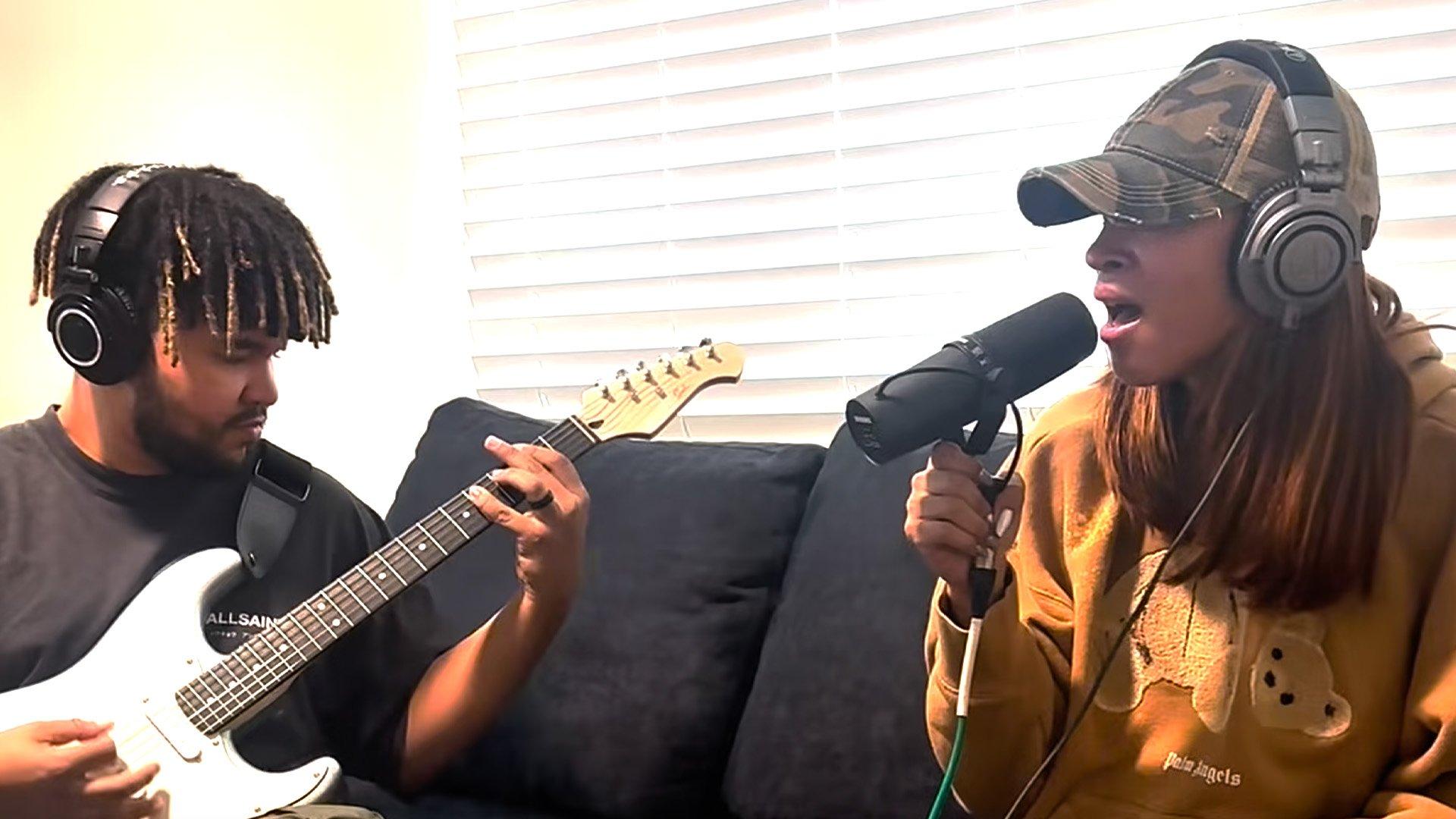
Photo: Courtesy of Genia
video
Press Play: Watch Genia Narrate The Pain Of Heartbreak In This Raw Performance Of "Dear Life"
R&B singer Genia offers an acoustic rendition of "Dear Life," one of the singles from her forthcoming mixtape, '4 AM In The Ville,' out April 19 via Def Jam.
On "Dear Life," R&B singer Genia pens a farewell letter to her lover — while simultaneously reflecting on how the intense saga crumbled her.
"I can't take anymore/ Put my pride aside, thought you could save me," she cries in the first verse. "These days, I don't know what I need/ You destroy me from the inside out/ If I go off the deep end/ You'll be sure not to bring me back."
In this episode of Press Play, watch Genia deliver a stripped-down performance of the vulnerable track alongside her guitarist.
The California native released "Dear Life" on Nov. 10, via Def Jam Recordings. She has also dropped three more singles — "Like That," "Know!," and "Let Me Wander" — leading up to her sophomore mixtape, 4 AM In The Ville, on April 19. 4 AM is a sequel to her debut, 4 PM In The Ville; both projects are inspired by Genia's experience of growing up in Victorville, California.
""[The songs] explore the different stages of grief in a relationship," she revealed in an interview with Urban Magazine. "The second tape is really me touching on falling in love, betrayal, anger, and rape."
Watch the video above to hear Genia's acoustic performance of "Dear Life," and check back to GRAMMY.com for more new episodes of Press Play.
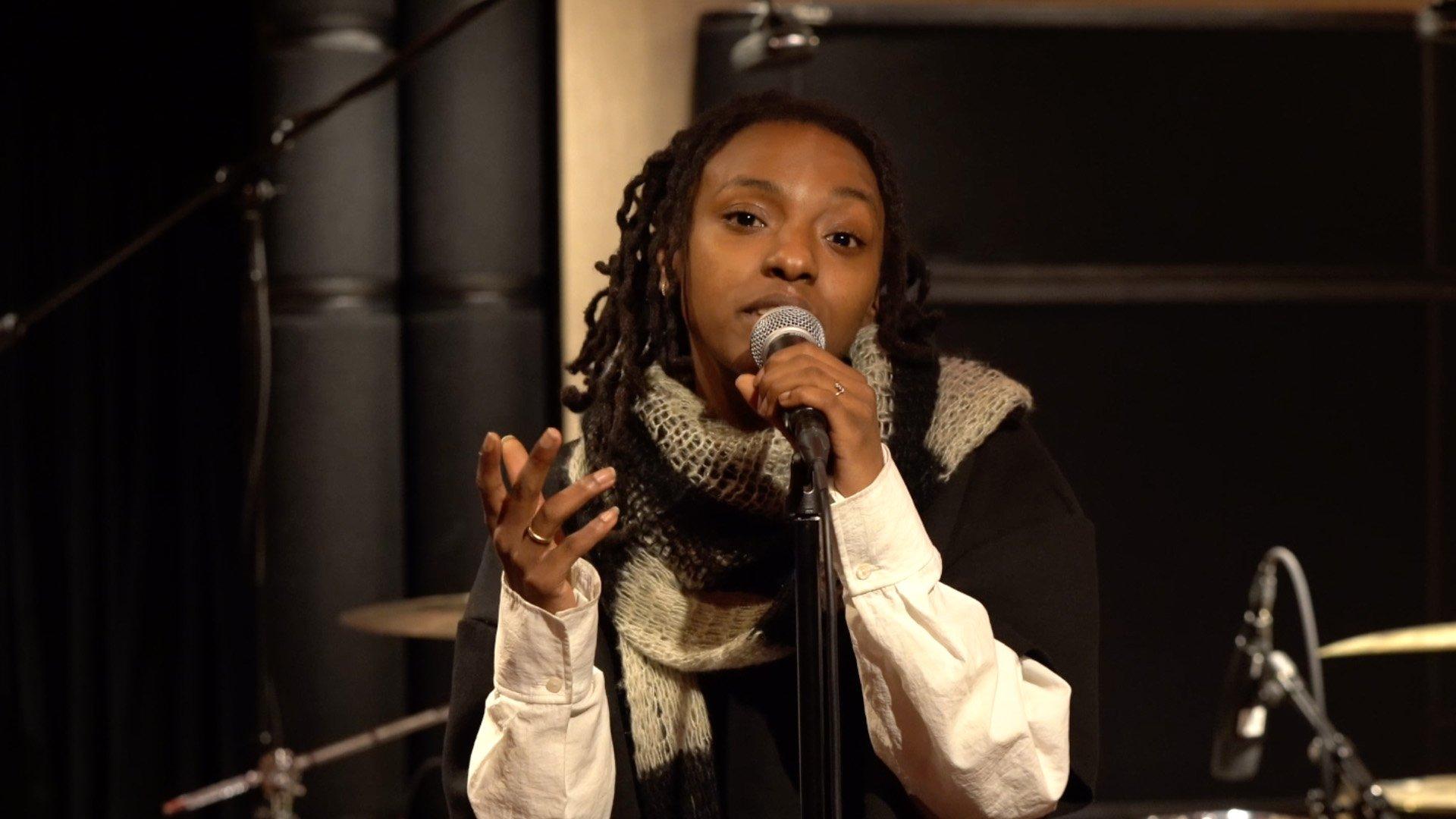
Photo: Courtesy of Kenya Vaun
video
Press Play: Watch Kenya Vaun Reminisce About "Yesterday" In This Sentimental Studio Performance
Philadelphia native and R&B newcomer Kenya Vaun honors the beauty of childhood in this stripped-down performance of "Yesterday," a track from her new EP, 'The Honeymoon Phase.'
Now in her early twenties, R&B rookie Kenya Vaun would give anything to return to her childhood adolescence — the days of block-turned-house parties and no bills.
"Feels like it was only yesterday/ And life was so easy yesterday," Vaun raps in the chorus of her new song, "Yesterday." "If I had the chance to do it again/ I'd do it the same/ The joy and the pain/ The coldest of winters/ The summertime rain/ No, I wouldn't change my yesterdays."
In this episode of Press Play, watch Vaun deliver a live rendition of the track, straight from the recording studio.
"Yesterday" arrives on Vaun's latest EP, The Honeymoon Phase, which dropped March 22 via 300 Entertainment. She also released an accompanying music video, filmed in her hometown, Philadelphia.
"'Yesterday' talks about my experiences when I was younger because that is a huge part of what made me who I am today," Vaun said in an interview with Rated R&B. "Seeing how times are today, it's kind of like, 'Dang. Imagine if I grew up during this time.' I don't know how I would be, like, for real."
Watch the video above to hear Kenya Vaun's nostalgic performance of "Yesterday," and check back to GRAMMY.com for more episodes of Press Play.
25 Artists To Watch In 2024: Chappell Roan, VCHA, Teezo Touchdown & More
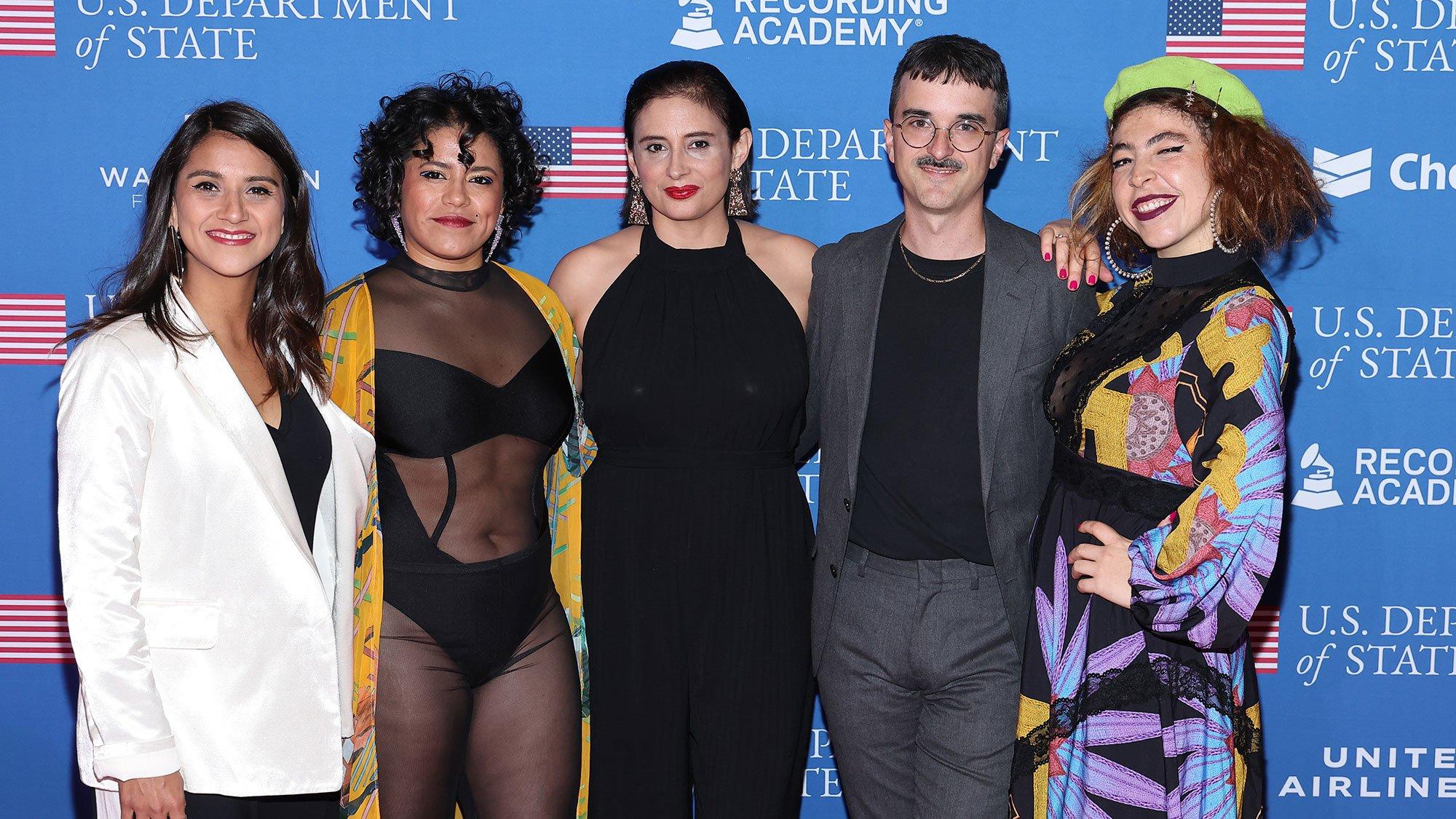
Photo: Paul Morigi/Getty Images
feature
Venezuelan Immigrant Musicians In The U.S. Carry Sound, Sentiment & Love For The Country They Left Behind
Venezuela is in the midst of a displacement crisis, with more than 7.3 million people leaving the country since 2014. Many of those immigrants are musicians, who bring their country's deep history and inventive attitude to cities like New York and Miami.
Every last Sunday of the month, composer, educator and community organizer, Mafer Bandola hosts workshops at Barbés, a popular bar in Brooklyn. In these didactic shows called Pipiris Nights, she teaches attendees about the instruments, music, and dance of joropo — a style from the grassy plains of Venezuela.
Attendees range from curious visitors to fellow Venezuelans, many of whom are recent immigrants, longing to reconnect with their roots. At Bandola's workshop, those Venezuelans often find themselves in tears while reminiscing over the country they left behind and watching their American children learn about their heritage.
In the past year, the number of Venezuelans living in New York has increased exponentially as part of a larger migrant crisis. In December 2023, the New York Times reported that more than 136,000 migrants have arrived in New York since the spring of 2022. Many of these migrants are from Venezuela. The NYT describes this movement as something which could lead to the first "Little Caracas" in the U.S.
Conditions in Venezuela — including a lack of food, medicine and essential services, increased crime and political unrest — have led many musicians to leave their country in search of better opportunities and quality of life. More than 7.3 million Venezuelans have left the country since 2014, and as of 2023 the exodus is considered the largest displacement crisis in the world. This migration is creating more than a social and economic impact; Venezuelan migrant musicians are leaving aural trails wherever they settle.
Prior to the current crisis, the power and passion of Venezuelan music caught the attention of archivists for the Smithsonian Center for Folklife and Cultural Heritage in 2008. Patricia Abdelnour, then the Cultural Attaché to the Venezuelan Embassy, traveled to Venezuela with Smithsonian Folkways Recordings to explore the musical landscape of her home country. Abdelnour’s trip and work led to the recording of three albums and concerts in the U.S. for Venezuelan musicians who had never even traveled outside of Venezuela.
Y Que Viva Venezuela is one of these albums, performed by the group Maestros del Joropo which includes Alfonso Moreno, Roberto Koch, Aquiles Báez and José Martínez. In the above video, they perform alongside Venezuelan violinist, director, and member of the Music Council of UNESCO Venezuela Eddy Marcano. Marcano was recognized by the Latin GRAMMYs in 2010 for his contribution to Tesoros de la música Venezolana - Llanos.
Inside New York's "Little Caracas" music scene
Bandola's first experience in the U.S. as a musician was in 2014, when she was accepted into a month-long musical residency called One Beat. To fill out the application, she "put each question through Google translate" because she didn’t know any English at the time, she says in Spanish via Zoom. At One Beat, Bandola met the members of LADAMA.
Bandola is a pioneer in musica llanera, as the first woman bandolista (in some regions women accompanied musica llanera with dance and song, however, the playing was left to the working cowboys). Bandola is also the only bandolista to play an electric bandola, merging traditional and modern elements with LADAMA.
There are plenty of styles within musica llanera, however, the most popular is Joropo. One that is accompanied by dance in festive settings. The llano work songs are sung to keep the cattle calm while they are being milked at dawn. There is an innate celebration and honoring of nature in musica llanera. The present-day style comes from a fusion of Indigenous, African, and Spanish influences, when colonization brought the Spanish style of fandango to Venezuela. LADAMA has incorporated these themes and sounds into their music by way of Bandola’s electric bandola stylings.
LADAMA toured Latin America in 2016 and 2017. During this time, Bandola endured many obstacles when traveling between countries. It was difficult for her to leave and enter Venezuela and the military at the Venezuelan airport would try to take away her instrument.
"The ideal life for me would be to live in Venezuela and only leave to travel and tour with my music," she tells GRAMMY.com. "I never thought I’d live outside of my country, only travel."
This is a shared experience for many Venezuelan musicians who made the difficult decision to leave. In a theater production in Miami called "Papá Cuatro," Mafer shares her life and immigration story alongside Venezuelan Latin GRAMMY winner Miguel Siso and Latin GRAMMY nominee Mariaca Semprún.
After the LADAMA tour concluded, Bandola "moved from country to country, because Venezuela wasn’t an option." After some time living in Canada during the pandemic, her manager successfully expedited the process to receive an artist visa and move to the United States permanently.
The story of how she chose the venue for her joropo workshops was serendipitous and spiritual even. When she approached Oliver Conan, the French owner of Barbés, he shared that he had spent 6 months traveling and living in Venezuela. He had been inspired so much by the music and the culture of los llanos that he bought himself a cuatro (a traditional Venezuelan instrument with four strings) and learned how to play. He even has a portrait of a Venezuelan saint hung above the bar, Dr. Jose Gregorio Hernandez.
The first Pipiris Night took place in March 2022 and is still going strong.
Afro-Venezuelan tambores meet in New York City
Mafer Bandola isn't the only Venezuelan artist creating community in New York. Elsewhere in the city, Willie Quintana is making a name for himself in the sphere of Afro-Venezuelan tambores. Born in Valencia and raised in Barinas, Venezuela, Willie came from a musical family.
In 2015, the lack of resources in Venezuela forced Quintana and his wife to move to the United States with their son. With him he brought a project that he hadn’t had the chance to develop in Venezuela; Afro-Venezuelan drumming collective Tambor y Caña was born in NYC in 2017.
Quintana shares that some new participants of Tambor y Caña recently arrived in the U.S. — a few risking their lives crossing the southern border. He says these young men from small rural areas have the true authentic cadence of Afro-Venezuelan drumming. "They are insanely talented!" he shared in Spanish in a Zoom interview.
To bring traditional Venezuelan instruments into the U.S., Quintana resorted to having friends bring a few instruments at a time when they traveled between the two countries. These drums — the cumaco, the mina, the curbata, the culo e’ puya, the long drum, and the pipa corta — are quite fragile and difficult to travel with in bulk.
Tambor y Caña has since performed at impressive venues throughout New York City, including the Lincoln Center, Barclays Center, Bronx Music House, and NYC City Hall. Inspired by the work Tambor y Caña was doing, a group of women became interested in learning Afro-Venezuelan drums. Through Quintana's drumming school (Escuela de Tambor Afrovenezolano y Percusión Afrolatina), TamborEllas was born.
Much like Bandola, TamborEllas are doing important work in Afro-Venezuelan musical tradition as it is generally dominated by men.
Tambor y Caña haven’t recorded music yet, instead focusing on leading workshops throughout New York City schools both for children and adults. Quintana has also worked with Venezuelan classical maestro Samuel Marchán, leading workshops for youth in the East River Music Project.
A burgeoning Venezuela 2.0 in Miami
Miami is also a hub for Venezuelan artists — so much so that Mafer Bandola felt nervous about finding a community in New York because so many Venezuelan musicians had left NYC for the south Florida city.
The largest enclave of Venezuelan immigrants is in south Florida, the city of Doral (also known as Doralzuela), and there is increasing demand for Venezuelan performers to share their work in the area.
Nostalgia for the country and people he left behind is a recurring theme in the music of now Miami-based Latin GRAMMY-nominated singer Danny Ocean. The lyrics of "Caracas en el 2000," a track with Miami-based Venezuelan artist ELENA ROSE and Jerry Di, reminisce about the youthful joy of walking along the streets of the capital city eating traditional Venezuelan foods with friends. Ocean's fond memories resonated with Venezuelan immigrants around the world, who share the sentiment of wanting to return soon. In "Caracas en el 2000" he sings, "quiero volver, quiero volver, cuándo?" (I want to return, but when?)
Simón Grossmann, often called the "Latin Jack Johnson," started performing while he was a summer camp counselor. Encouraged by colleagues and campers, Grossman recorded his first album, Ciclo, in 2017. Today it has over 7 million streams.
The album’s producer, Venezuelan GRAMMY nominated José Luis Pardo has also worked with DJ Afro, Rawayana, Camila Luna, and Los Amigos Invisibles.
Grossmann released Mujer Eléctrica in 2018 and Bahia Margarita three years later; the latter is considered to be his best work to date. In an interview with NPR, Grossmann said the album was inspired by the Venezuelan island of Margarita where he spent many childhood summers. Grossman recalled those memories during the quarantine lockdown as a form of escape and wondered "what would my adult self be doing in that place right now?"
Also known for his skillful lyricism, Migguel Anggelo is a dancer, actor, and musician who has moved away from traditional Venezuelan styles. When he was trying to get projects off the ground in Miami, he was told his experimental style was "not commercial enough" and too "poetic" for the Miami music scene. Fittingly, he even speaks in metaphors.
"I am a Venezuelan tree, an Araguaney, the national tree from Venezuela. I am beautiful and have huge branches," Anggelo says, describing himself. "I can offer you my shade, my music. I can comfort you…I came here to give you music and shade from the sun and the rain."
On "Inmigrantes" Anggelo sings in Spanish, "my only frontier is my mother’s womb." He shares that he was ecstatic and surprised when he toured in Russia and audiences sang along to the English and Spanish lyrics. Migguel Anggelo has two albums, Dónde Estará Matisse and La Casa Azul, and he is currently working on his third album. He has completed residencies at the Lincoln Center, Miami Light Project, The Kimmel Center for the Performing Arts, and BRIC (Brooklyn) and hopes to continue expanding his repertoire.
As an openly gay man from a relatively machista culture, Migguel Anggelo has inspired people to come out to their families through his performances. Migguel Anggelo wants American audiences to see that immigrants are not bad, as some American pundits like to say.
San Juan USA brings a Venezuelan drumming festival to Miami
Approximately 100,000 people were kidnapped from West Africa and enslaved in Venezuelan territories between 1576 and 1810. Along Venezuela's coast and bordering states, their descendants now celebrate the festival of San Juan, in which they honor and worship St. John the Baptist. The cornerstone of this June event is the drumming tradition, during which traditional maraca accompanies the beat of the Afro-Venezuelan drums. The festive cycle includes many musical and dance rituals grounded in mythical and symbolic traditions which have been taught for the past 400 years.
San Juan USA, which includes Grace Salamanca, Marcos Espinoza, and Pedro Sarabia, continues this tradition with an annual festival at the Miami Beach Bandshell. In February, San Juan USA led a dance and drumming workshop as part of a Black History Month celebration. Children gathered around the traditional drums with bright smiles and insatiable curiosity as the musicians showed them how to play the instruments. San Juan USA’s participation in such community events, underscores the importance Venezuelan artists place on educating people about the culture and musical tradition of their country.
Local Venezuelan artists are performing innovative sets at new venues, such as ZeyZey in Miami's Little River neighborhood. In February, Venezuelan DJ Venezonix and tambores group San Juan USA performed a combination of traditional Afro-Venezuelan styles with EDM and house beats. The crowd, many of whom were Venezuelan, took advantage of the venue’s large terrace to dance the traditional tambores style. The event successfully brought a modern take of traditional Venezuelan music to an audience of Venezuelan immigrants and visitors, as well as locals and tourists of other cultures.
Luis "Papo'' Marquez — Cuban singer, composer, and producer and president of Miami recording studio PapoMusic — lived in Venezuela for many years, and collaborated with local artists. He attributes a large part of his musical formation to the time he spent working with musicians in Venezuela. "I quickly realized that Venezuelan musicians were very versatile," Marquez says via WhatsApp.
This openness and versatility allows its musicians to adapt to many genres. Venezuela has always been receptive to international music, Marquez continues, adding that the Venezuleans he knows will learn any style of music — including pop, rock, flamenco, salsa, and jazz.
"Venezuelans in general are very talented and hard-working people," he says in Spanish. It’s easy for them to enter any scene, specifically the American music scene, due to their outstanding preparedness.
Marquez refers to himself as Cuban Venezuelan due to the influence the country had on his career, and their shared histories. He is proud of the impact this community of creative, well-rounded, and determined musicians have made here in the states. The success, talent and prolific nature of Venezuelan musicians is proof that, while you can take the artist out of Venezuela, but you cannot take the love and pride with which they sing and play.
Meet The Gen Z Women Claiming Space In The Regional Mexican Music Movement
